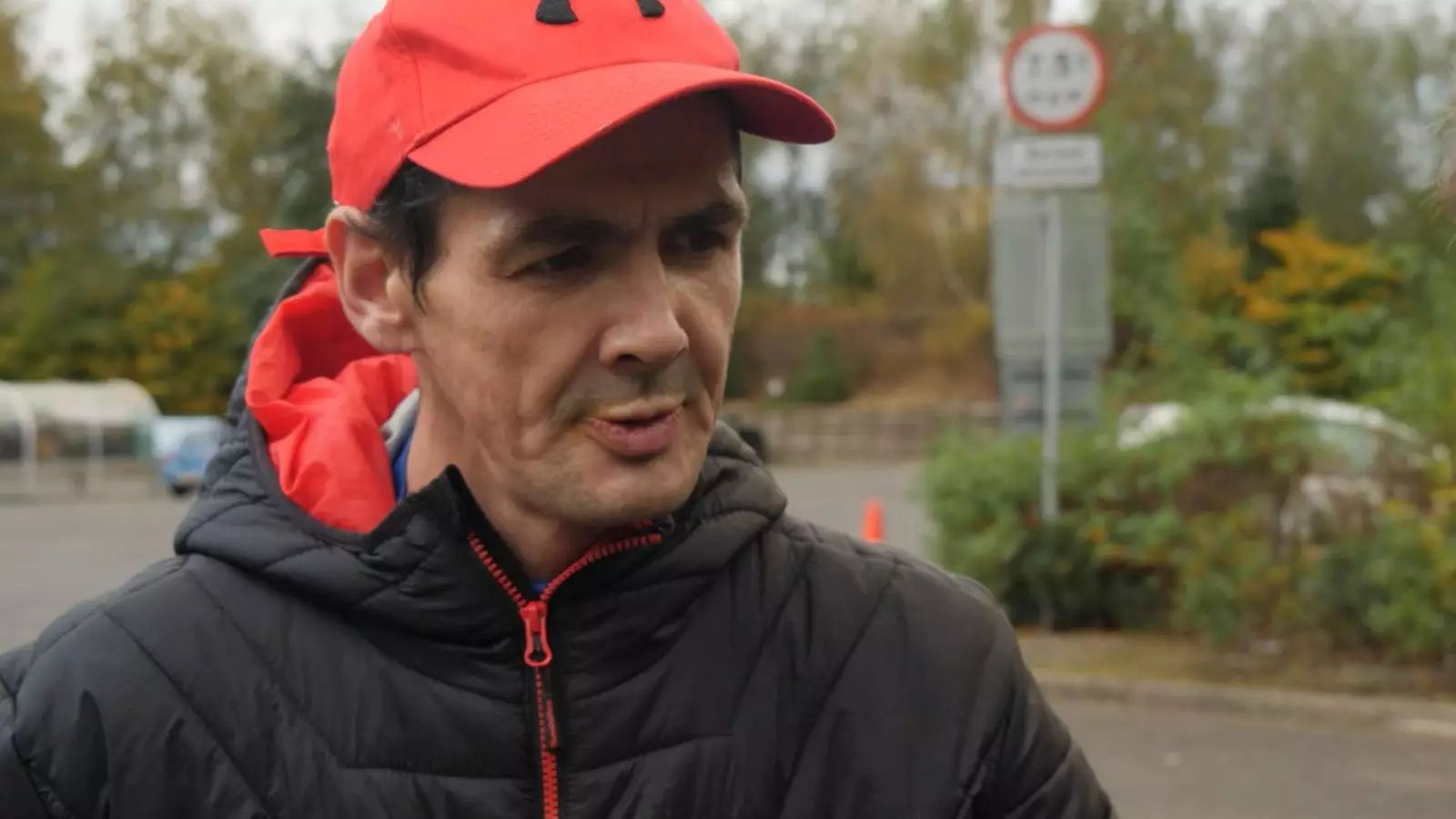On a frigid morning in east Glasgow, the harsh reality of addiction dramatically unfolds. Chris, a 41-year-old former painter and decorator, finds himself consumed by an insatiable desire for his next dose of heroin. As he strides through the neighborhood with a syringe in hand, his eyes reveal not merely desperation but a poignant picture of a life irrevocably marred by drug dependency and crime. The vibrant energy of the city, represented by the bustling cars and local businesses, simultaneously juxtaposes the dark alleys where many like Chris seek solace in substances that promise euphoria yet deliver despair.
Chris’s quest for a quick fix reflects not just a personal struggle, but a societal epidemic that bypassed the vibrant culture of Glasgow, leaving behind shattered lives and broken communities. With two decades of addiction ensuing from a profound personal trauma—his mother’s tragic murder in 2007—it is evident that a cycle of despair has ensnared him, rendering the harshness of his reality almost unimaginable.
Venturing towards a makeshift den hidden amidst bushes near a supermarket parking lot, Chris’s actions illustrate the lengths to which individuals will go to score their substances. Surrounded by hazardous debris—including blood-stained needles and discarded paraphernalia—the setting paints a chilling portrait of addiction in urban environments. To the untrained eye, these scenes may seem chaotic and nonsensical, but to Chris, this grim reality represents a familiar path paved with the remnants of choices long surrendered to addiction.
Sitting on a degraded petrol can, syringe clenched between his teeth, Chris embodies the struggle for dignity amidst the degradation of addiction. His moments of preparation are marred by a haunting dichotomy of desire and disgust, as he grapples with both the physical necessity of the drug and the sheer humiliation of his circumstances. This internal conflict highlights the profound human tragedy at the heart of addiction—where survival instincts trample over the inherent desire for respect and self-acceptance.
As Glasgow grapples with the highest rates of drug-related mortality in Europe—1,172 reported deaths last year—the government’s introduction of a “safer drug consumption room” opens a critical dialogue about harm reduction. Set to become the first facility of its kind in the UK, this initiative aims to redefine the relationship between addiction, healthcare, and law enforcement. The idea suggests a shift from criminalization towards compassion, allowing addicts to consume substances in a monitored environment without the looming threat of arrest.
Chris, however, is skeptical about the efficacy and sincerity of such initiatives. Even as he acknowledges that these facilities could provide a degree of safety and reduce the dangers posed by contaminated needles and unsupervised drug use, his implicit distrust toward the authorities and their motives lingers. “It could be a trap,” he suggests, revealing a deep-seated skepticism that stems from years of being marginalized and criminalized.
The implementation of safer consumption rooms remains contentious, drawing criticism from various quarters. Detractors argue that these facilities could unintentionally glorify drug use while diverting financial resources away from critical treatment and rehabilitation services. With a staggering £2.3 million allocated annually for the pilot program in Glasgow, concerns arise over potential misallocation of funds in a healthcare landscape already overstretched and inundated with challenges.
Despite the political complexities and financial ramifications, advocates champion the initiative as a crucial step towards minimizing the high rates of overdose deaths that plague neighborhoods like Chris’s. The pressing question remains whether this approach will shift public perception of addiction from a purely punitive framework to one grounded in empathy and understanding.
As the morning unfolds, Chris reflects on the fleeting nature of life as he balances the highs and lows of addiction. When asked if he fears that his next hit could be his last, he speaks candidly about the pall of hopelessness that overshadows his existence. “To be honest, that would be a blessing,” he replies, encapsulating the tragic irony many addicts experience. The line between life and death blurs when survival becomes entangled with addiction; hope fades into a suffocating reality.
Chris’s story is not just one of addiction, but a reflection of broader societal failures that allow such tragedies to persist. As Glasgow grapples with this ongoing crisis, the conversation must evolve to consider the compassion and resources necessary to uplift individuals like Chris rather than merely treating addiction as a criminal issue. Ultimately, the fate of countless lives hangs in the balance, calling for urgent action, understanding, and humanity in addressing the epidemic that has quietly ensnared too many.


Leave a Reply